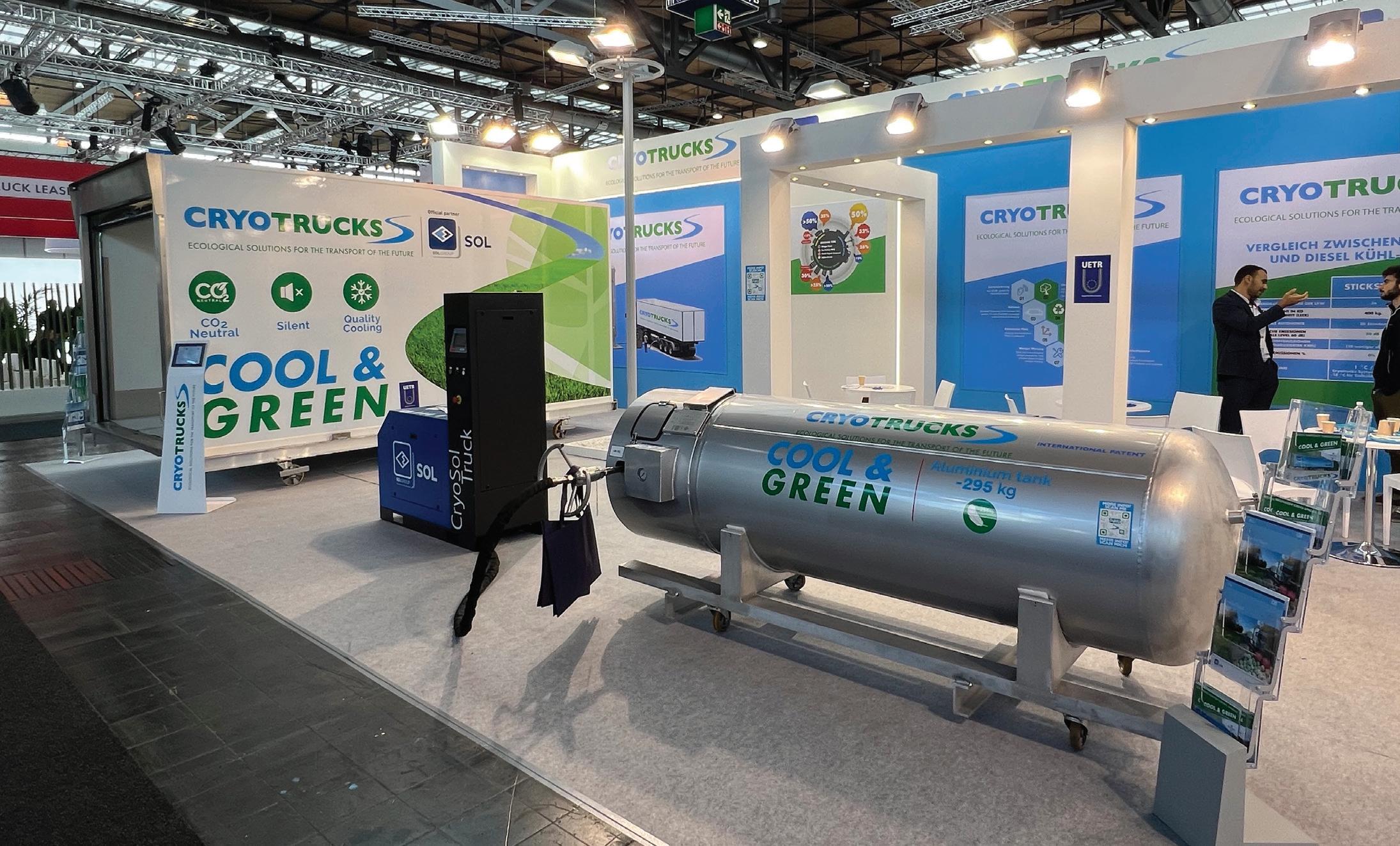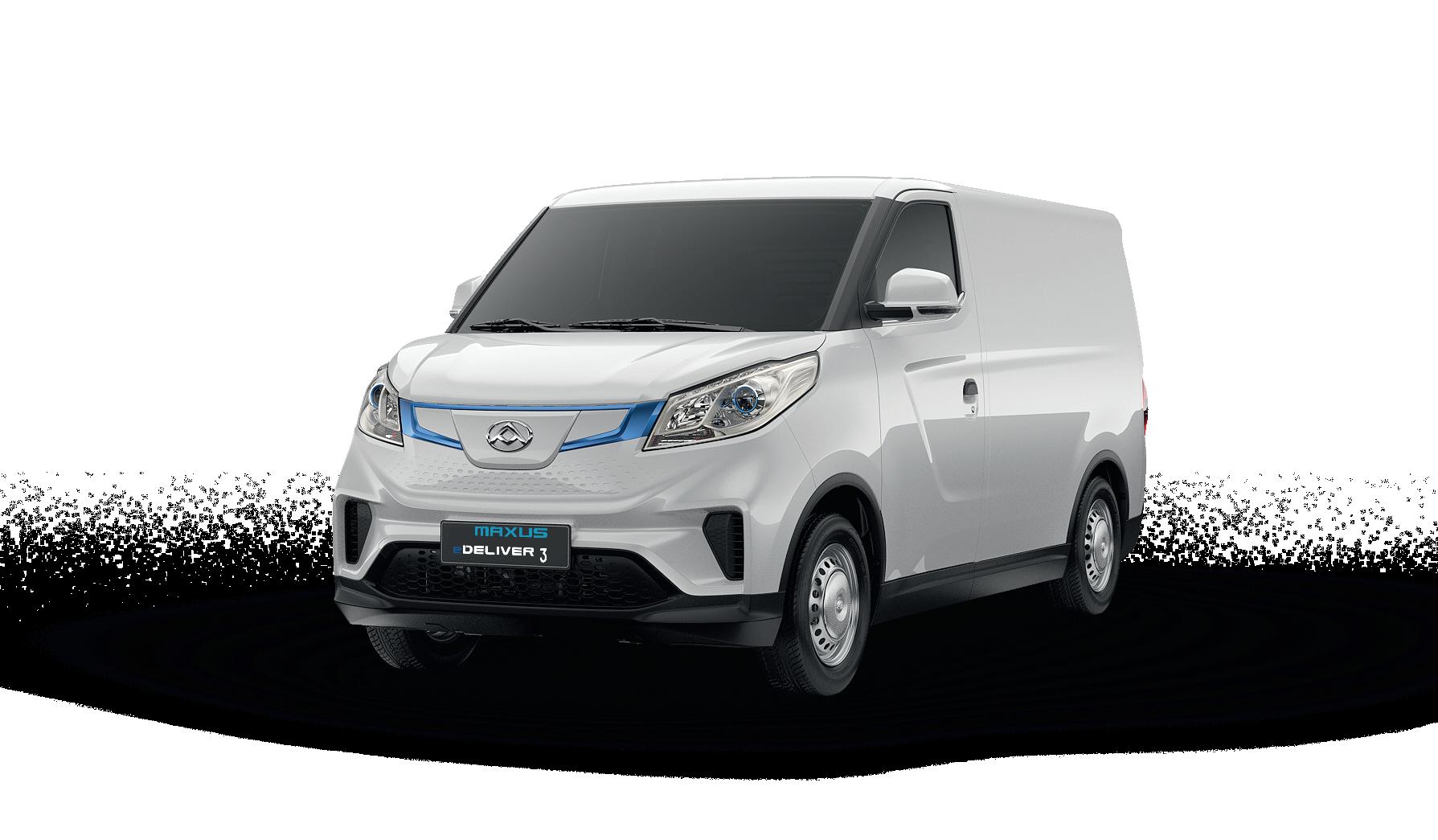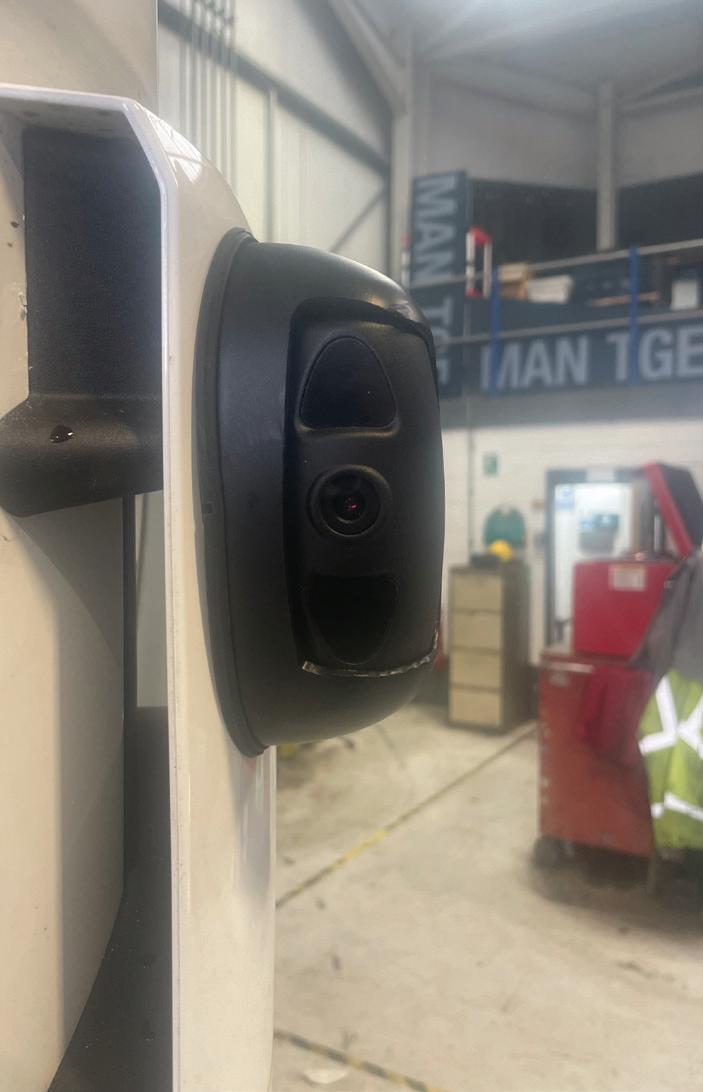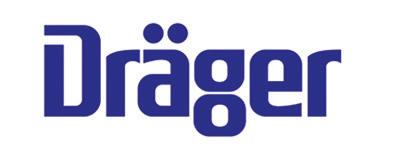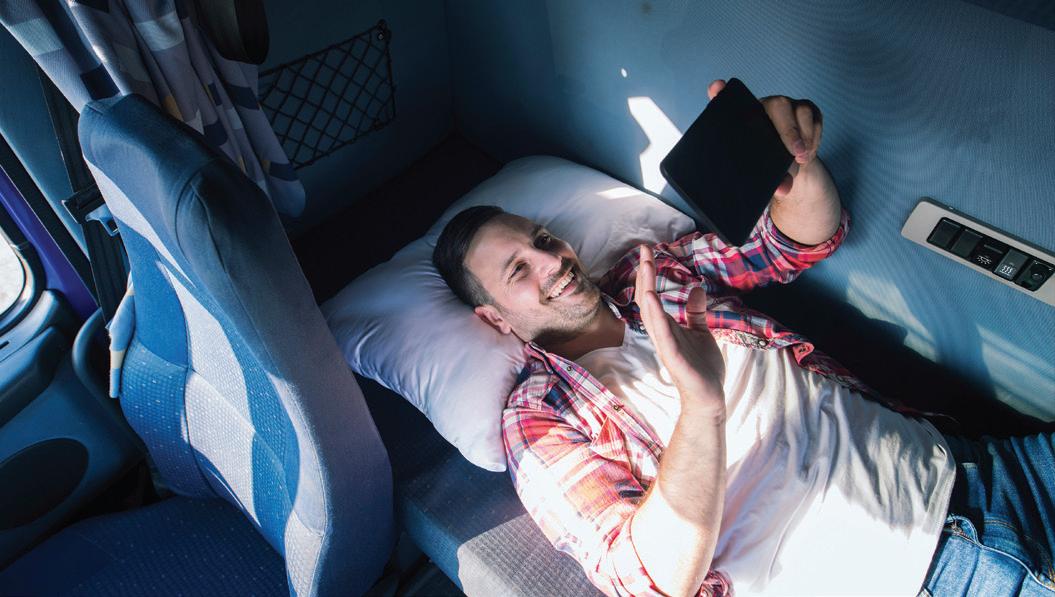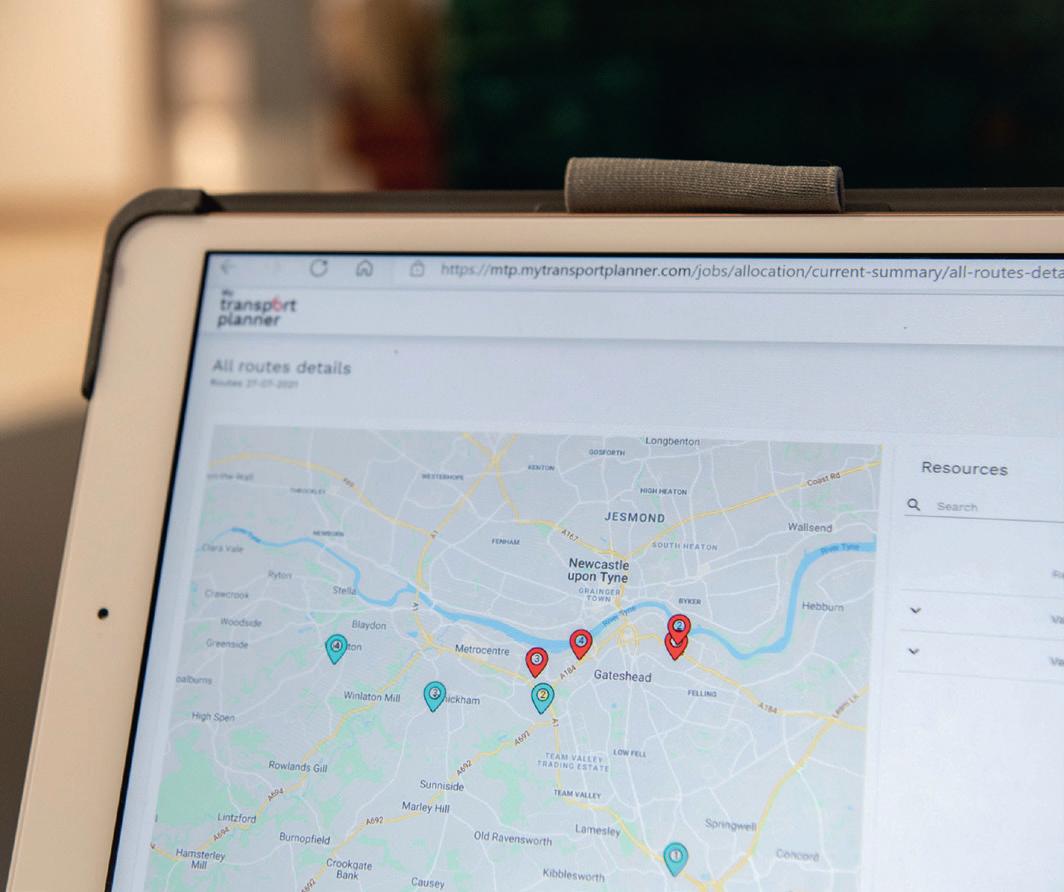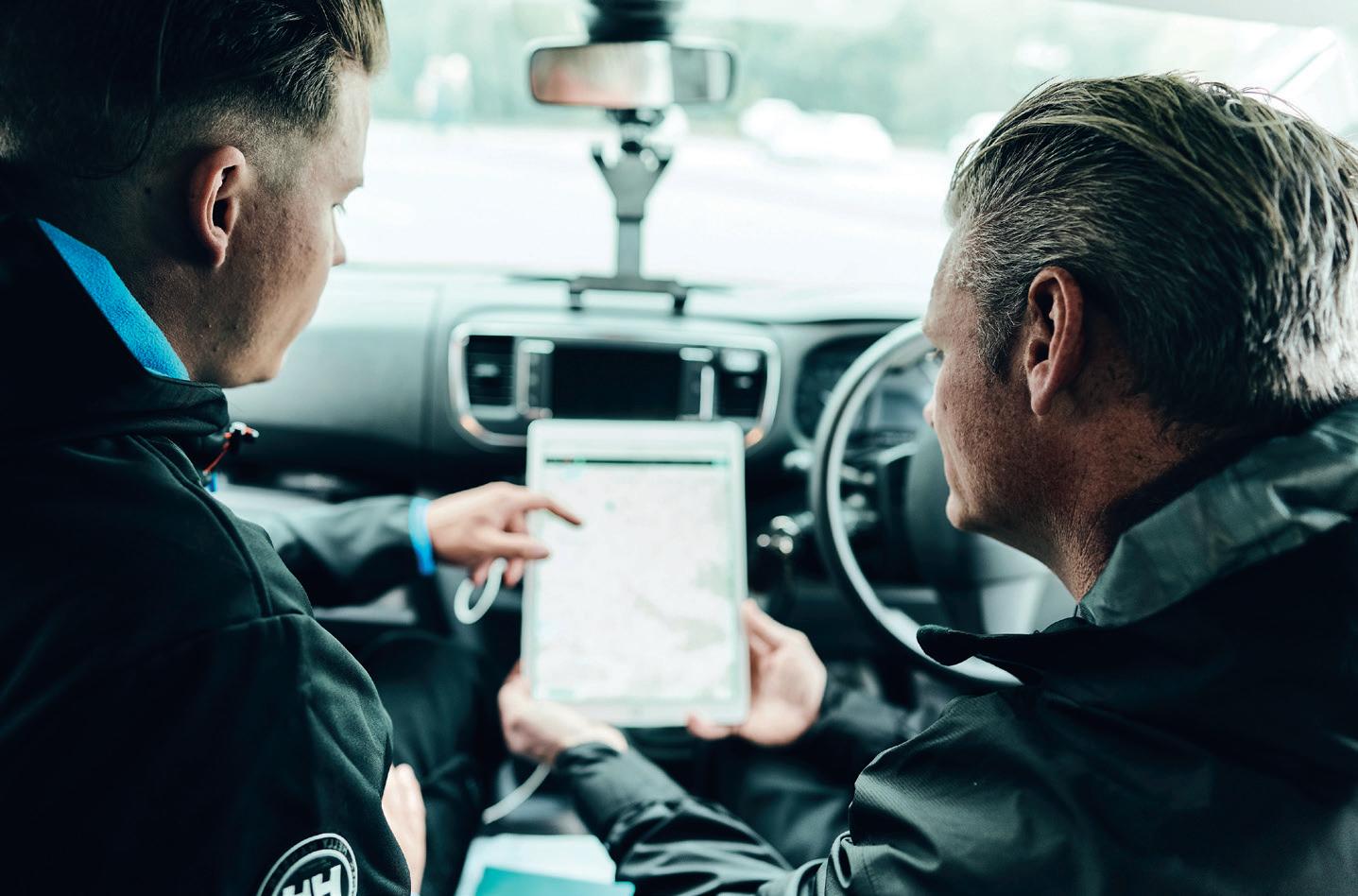
8 minute read
Operator profile
from FORS Standard Autumn 2022
by CVMP
Words: Richard Simpson
McCANN TURNS GOLD TO GREEN ADVANTAGE
UK infrastructure specialist McCann has found FORS accreditation to be a valuable business essential. However its benefits to the business do not end there, with a number of environmental advantages resulting from it as well
FORS accreditation is one of the biggest factors that enable us to be a major player in the civil engineering and infrastructure sector, says Paul King, Fleet and Plant Manager at McCann.
Now owned by the second-generation of the McCann family and with over 50 years of expertise under its belt, the company is a Tier Two operator within infrastructure provision, meaning it is contracted by names such as Balfour Beatty and Highways England to support major highways and civil engineering projects.
“Our specialities include installing lighting, signage, smart motorway technology, full fibre networks and all associated civil engineering,” King explains.
“FORS accreditation is a prerequisite for consideration when we tender for these projects, so it’s an essential accreditation for the business as it looks Below: Changing the lightbulbs at Buckingham Palace is all in a day’s work for FORS Gold operator McCann

Above: McCann’s heavy truck fleet is dominated by DAF and Volvo 32-tonne tippergrabs
Below: Paul King is qualified as a FORS Practitioner to continue to grow and evolve the scope of projects it works across.”
The company began its FORS journey in 2015 when it gained Bronze accreditation. It soon became apparent, however, that FORS Silver would be the minimum standard for this industrial sector, so King was brought on board in 2017 and was set the target of becoming a FORS Practitioner himself while gaining the business Silver accreditation within six months.
“I went on a lot of courses, qualified as a FORS Practitioner and we achieved Silver level before the end of 2018 – a terrific result! Then, in the first half of this year, we achieved Gold. A real collective achievement.”
King goes on to emphasise that FORS accreditation is about much more than legal compliance. It was also an important commercial decision for McCann.
King said: “It’s not just about being legally compliant. That’s covered by our O licence, for which I’m the named transport manager, and we also have a green operator recognition score from DVSA.
“What having a FORS accreditation really does is bring everything together. The Gold standard says we are as good as we can be, not just legally, but also when it comes to areas such as training and the environment.
“It proves what you can do and you can’t secure works on major projects such as HS2 without it.”

Focus on upgrades King has focused his time and energy on two important areas since joining McCann – modernising the fleet and upskilling staff.
“Training within a company like ours is always going to be a challenge,” he said. “We work on projects nationwide and most of our drivers and operators have specialist skills. It’s not like you can employ someone from an agency to drive a vehicle while you train your own staff.
“So, it requires planning to make sure you can get the right people in the right place at the right time. But training was one of the cornerstones of getting from the FORS Bronze to the Silver accreditation.”
And King faced a similar challenge when modernising the fleet.
“We have 135 registered commercial vehicles across both vans and trucks. The fleet I inherited needed modernising. It wasn’t Euro VI at the time and one of the challenges you face when improving your organisation in order to achieve Gold is having as green a fleet as possible.
“Today, every truck meets the latest Euro VI standard, every van meets Euro 6 standards, all of our plant is Emissions Tier 5 and every car is, at minimum, a plug-in hybrid or fully electric. That’s 385 vehicles in total. We’re now at the stage where we’re riding the green technology wave rather than catching up, which I am very proud of.”
King enlisted the help of specialist contract hire firm MV Commercial when modernising the fleet and is pleased with the results of the partnership.
“Our heavy fleet consists entirely of rigid 32-tonne vehicles with specialist bodywork including tipper-grabs, HiAbs for overhead work and beavertails for plant transport. Manufacturers do not build these vehicles for stock, even in normal times.
“Fortunately, MV can order chassis in bulk from our manufacturers of choice – mostly DAF and Volvo. MV then sources and fits the bodywork and equipment to our specification, including the necessary safety systems required for FORS Gold.”
McCann’s drivers also require a number of qualifications in order to operate this ever-expanding fleet, including Driver CPC and a lorry-crane certification in addition to the necessary FORS Gold requirements. Fortunately, some FORS modules such as Safe Urban Driving can also be counted towards the Driver CPC requirement for periodic training.
“The team is becoming accustomed to the idea that training and development is a continual process and it can cover a
anything from manual handling to first aid.”
Strong record Is it difficult to retain staff once trained, particularly in the light of the driver shortage?
“We have a strong driver retention record,” says King. “In part, this is because we’re not a faceless multinational. Our MD John McCann, son of founder McCann Senior, knows the name of each and every one of our 400 staff and will happily talk to any of them. There is a nice feeling around the company at the moment that it is big enough to cope and small enough to care. And we do – for instance, I’m a qualified mental health first-aider.
“Retention is also helped by the fact that the business pays people well, but it’s not all about money. I’ve worked for agencies where drivers would change jobs for 50 pence an hour extra, but drivers value the security that comes with working for McCann. They know they will be looked after – and that means a lot to them. We’re a business that cares.
“Driving on our projects is not easy when you compare it to motorway trunking for example, but variety keeps people engaged and enjoying what they do. And working in our industry means that no two days will ever be the same. This alone attracts a certain type of driver.”
Having upgraded the fleet to the latest standards, King is now drawing breath and considering what the next move will be.
“What do we buy next, what will we need? Will it be appropriate for our needs when it arrives? The latest tipper-grabs we ordered in March 2021 are only just arriving now, so we always have to think long term.

Next steps “The obvious next step is some kind of electric-hybrid or electric truck, but when can we buy it and will it be suitable in a construction environment?
“We’ve made great progress electrifying our car fleet. The biggest challenge is charging the vehicles, which is easy for managers’ cars because they can charge them at the office or at home. But with vans and HGVs, where do we charge them and when?
“These vehicles could be working anywhere in the country and currently there is nowhere to charge them. The public vehicle charging infrastructure has its flaws at the moment. It’s not the same as general haulage where you can place electric trucks onto predictable routes and install chargers at depots where there will be a scheduled opportunity to use them. Our vehicles work nationwide, so an open nationwide charging network is a prerequisite.
“The economic case has been made for electric cars as the increased front-end cost is compensated for by the reduced operating cost. But that’s not yet the case for vans, let alone heavy goods vehicles. The fact is that the current electric trucks cost a lot more, carry less and can only travel 200 miles before they need charging. And there’s nowhere to charge them.
“It’s disappointing. We currently have the greenest fleet we can operate, but there are still environmental issues. We’ve looked at switching from white diesel to HVO, which we could use in our current fleet, but there’s an infrastructure hurdle that comes with such a switch. Where would we fill up? It’s not currently sold on forecourts.
“We could bulk buy it and store it on-site, but this creates environmental impacts when we move the bowsers. HVO is also more expensive than standard diesel, but if we could, we’d use it. Unfortunately it’s a lack of infrastructure that’s holding McCann and many others, back on their green journey.
“The infrastructure projects we’re now working on should, in an ideal world, incorporate adequate charging points and infrastructure, but it’s not necessarily something that businesses can achieve on their own. It needs Government support and action to enforce it.
“I can see our fleet remaining as it is in terms of new innovations until 2024. At that point, we can then explore electric vans and trucks again as well as perhaps newer technologies such as hydrogen. But we’ve come a long way already as a business. I’m proud of the progress we continue to make in partnership with reputable organisations such as FORS that continue to set high standards for our industry to meet – which can only benefit all of us in the long-term.” ■
Below:The van fleet remains 100% dieselpowered because of concerns over range and recharging


